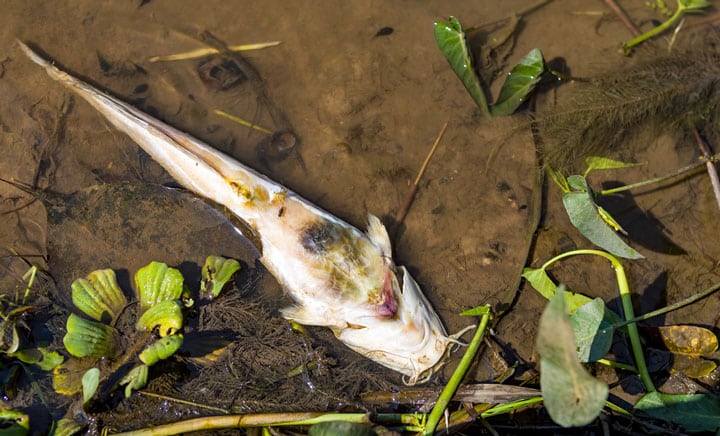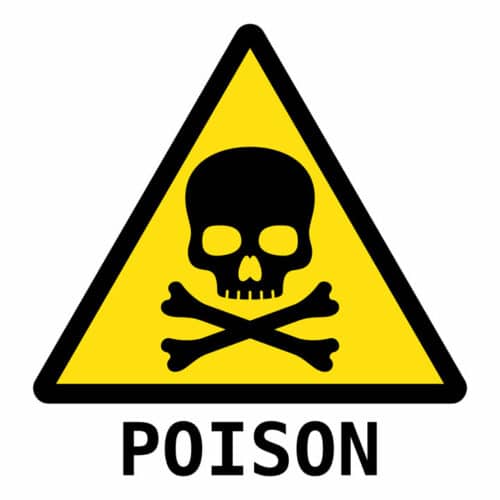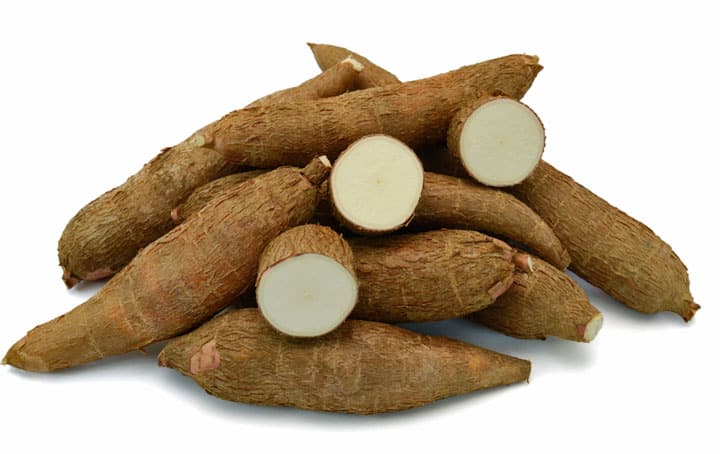You-Me-We-Us: You-Me-We-Us: 'Life and Death Next to a Lead Mine'

The story of the people of Klity Creek (ห้วยคลิตี้) in Kanchanaburi province whose blood was poisoned by a lead mine; the history of failed efforts to clean up the poison and clean the creek, and the community's fight for justice.
As long as people lived near Klity Creek, the creek was the only source of water. The elderly in the village put it this way: 'If there is water, then there is life. No water means no life.' The inhabitants used the water of the creek not only for drinking and cooking, but also for agriculture and personal care.
The creek's varied animal life, with fish and shellfish, was a source of their food. A source of entertainment for the children. Life in the village was so intertwined with the creek that the creek could safely be called the life water and soul of the community.
The lead mine
But their water source turned into a deadly disaster. In 1967 the Lead Concentrates Company Ltd started a lead mine just 12 km north of the creek and the lead waste was dumped into the water without filters or treatment. Outraged, the residents of Klity Creek banded together to fight against this injustice and they still do today.

The deadly effects of lead poisoning
In 1972, residents noticed that the water in the creek was slowly turning murky and red; there was also a smell. What was also alarming was the large number of dead fish that floated to the surface and not long after that the residents became ill. Many experienced headaches, dizziness, upset stomach, numbness and swelling in the extremities, and fatigue.
Treatment with traditional medicines had no effect and the community was deeply concerned. For some, the disease was fatal. Even worse, the children born then showed abnormalities such as hydrocephalus, abnormalities of the limbs, eye complaints and polydactyly (more than five fingers or toes on the hand or foot). Miscarriages and mortality among young children increased.
In a man who died in 2015, an amount of 41 mg/dL of lead was found in his blood; this is a concentration many times higher than the safe amount.
The Jo family and lead poisoning
The article takes a detailed look at the medical misery experienced by two children and a nephew of the deceased man. It has been decided not to include this in this operation.

A traditional way of life disrupted
The Klity community consists of Karen people who have lived for generations in the Thung Yai Naresuan hills in Kanchanaburi province. Their way of life depends on what the rich nature offers them. Not so long ago money had no meaning in the Klity region; all you needed was a knife, hoe and shovel.
The traditional Karen system of crop rotation in the fields allowed rice, fruit and vegetables to be grown. People lived simply and their traditions were passed on to subsequent generations, which kept the community intact.
But their lives were turned upside down when the water turned reddish brown and started to smell. When there was no more fish to catch in the water, the community became dependent on merchants for food. After people fell ill due to poisoning, the journey to the state hospital proved difficult and arduous. That often took a whole day because no cars could come. The sick had to drive a tractor for two hours, then fifty kilometers on dirt roads and then another two hours on paved roads.

Manioc, cassava
All these things created the need for money to be able to trade. For food, transport, medical care. Many people were forced to abandon crop rotation and switch to 'monoculture' such as maize and cassava (manioc).
Year after year, thousands of tons of corn from the Klity region were sold for the production of animal feed for pigs, poultry and fish feed.
Poison in the food chain
A welfare worker: 'Now that the soil in the Klity region is extremely contaminated with lead, the corn that grows here and is used for animal feed will undoubtedly also contain lead. This lead also occurs further down the food chain and will be consumed and sold in restaurants, markets and shopping centres. That will be exacerbated if the water from the creek has been used for irrigation.”
'What is also worrying is that the creek flows into the Srinagarin basin and the water eventually ends up in the Mae Klong River and the Maha Sawat Canal and that water is used in Thonburi, a heavily populated part of Bangkok. Finally, the water ends up in the Gulf of Thailand, which is used by the entire country. The danger of lead therefore not only affects Klitykreek, but a much larger part of the population.'
The judge
The Administrative Court and Civil Court have ruled that both the State and the lead companies are responsible for restoring the creek and surrounding area. But twenty years have now passed and no action has been taken. The question is whether justice that you don't get isn't equal to injustice?
The adults are seriously concerned for their offspring. To this day, the lead levels in the children's blood are much higher than medically justified and the numbers are increasing from year to year. How many more generations must suffer before the people in power take responsibility and remove all lead?
Source: https://you-me-we-us.com/story-view Translation and editing Erik Kuijpers. The text has been greatly shortened.
For photos of the living environment and the story of the Jo family: https://you-me-we-us.com/story/living-with-lead-lower-klity-creek
Author: Thamakrit Thongfa, a Pwo Karen living in Kanchanaburi.
'I am always committed to the living environment for the community here, for the minorities and the indigenous population. My dream is that all these people, and the planet, are protected by proper laws and procedures that are enforced if necessary and all without discrimination because I believe that all people are equal.


You won't make it with words, people have been trying for 50 years.
Action must be taken.
Solution Blow up the mine and make sure it doesn't open again by making it a protected area.
Cultural Heritage.
Around the world, business interests often trump health considerations. In Thailand, that is very extreme in many areas. In addition, environmental activists are persecuted, imprisoned and killed. At least a dozen and possibly more activists have been murdered in the past 20 years. Sad.
Thailand is therefore a heavily capitalist and unequal country, where (human) judges are lower on the ladder. The extraction of raw materials and the pollution of nature does not immediately have a cost item, as long as the high lords are not really held accountable and held accountable with real consequences, it does little to bring about changes. The kklotjesvol and in particular minority groups, reap the bitter fruits of this.
The series shows a lot of what is and is going wrong in Thailand, the story is not new but the attention must remain, otherwise we can certainly forget the chance of radical changes for the benefit of the population. But it hurts that these practices have been going on for years, seem to stay for a while and make so many victims to this day and tomorrow. Sad, very sad.
An article from the BKK Post about 'cleaning up' the electricity. Unsalvageable, is the conclusion. You will have to dig that deep, power and soil, and is it clean? Redirect the river, close off the site and let nature do its job? But those people have to live somewhere…. The big money has won again, unfortunately.
https://www.bangkokpost.com/thailand/general/2079879/too-late-to-save-klity-creek
Well, the legislation still fails and even then the risk remains: if you try to pay the company "all" costs regarding damages, repairs, etc., it may well go bankrupt. Then the bill still falls on the taxpayer (financially) and the residents (physically). Prevention is better than cure, nipping this kind of practice in the bud would help a lot. Intuitively, I would prefer to oblige the board and management of such a company to live, work and live in the polluted area so that they do not throw some money at it to largely get away with it. That can a) not be regulated by law b) would also not be humane and goes against the core value that people should treat people, animals, nature and the environment as much as possible so that life will still be pleasant tomorrow
Or it is waiting for the very long term, when man digs his own grave and perishes, the earth and everything else that grows on it will find a new way until this galaxy has had its best time. But that is quite a depressing thought, it must and can be done differently, right? A glimmer of hope for better times and learning from our mistakes?